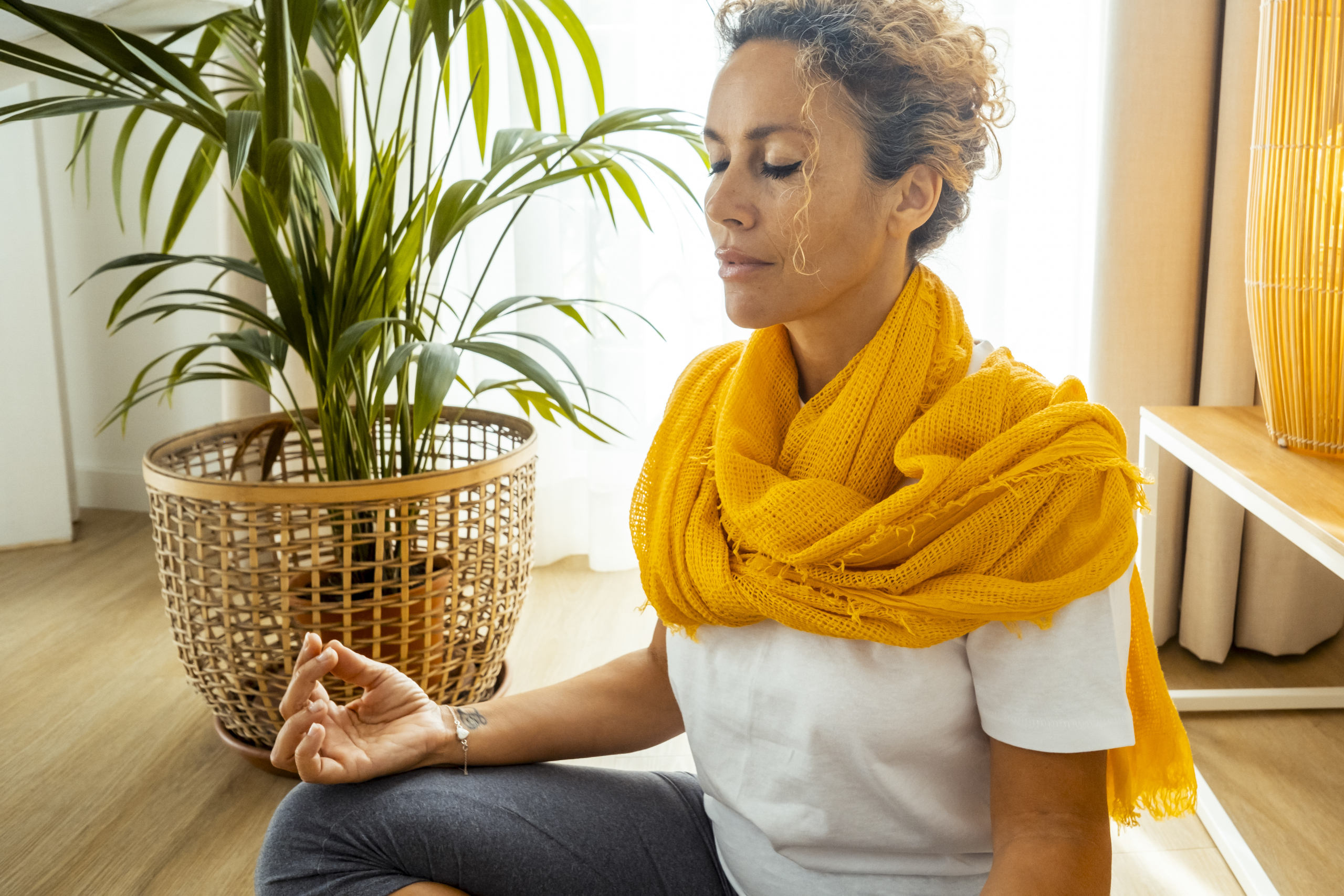Have you always put everyone else ahead of yourself? Do you find that self-care stays on the bottom of your to-do list? Or do you feel like self-care is only a treat, an indulgence, because it’s the spa day you’ve been waiting for?
We are here to tell you: self-care needs to be a priority, now more than ever. Not only for your mental health, but also for your entire well-being.
We know that’s easier said than done sometimes, especially if you’re feeling burnout. Fixing burnout after it happens is not ideal, and it can last from a few months up to a few years if it’s not addressed sooner. Stress, anxiety, depression, and many other mental health issues can also arise or worsen when self-care is not made a top priority.
However, there is good news. When we catch ourselves getting stressed out and finding it a bit harder to deal with things than usual, there is something you can do.
We have mental self-care and mindfulness tips that can be used year-round, and they can be added into part of your daily routine.
Before we can talk about that however, we need to address something attached to the difficulty of achieving mindfulness: burnout.
Burnout and Other Side Effects of Life
Burnout is usually caused by too much and ongoing stress. It is a state of emotional, physical, and mental exhaustion, occurring when you feel overwhelmed, emotionally drained, and unable to meet continuous demands.
When you’re constantly feeling like you have nothing left to give, burnout eventually reduces your productivity and drains your energy, leaving you feeling increasingly helpless, hopeless, cynical, and resentful.
The negative effects of burnout carry over into each area of life, home, work, and social. It can also cause long-term changes to your body that can cause vulnerability to illnesses such as colds and the flu.
Other side effects of not practicing self-care include:
- Low energy
- Feeling of hopelessness
- Lowered patience
- An increase in symptoms of stress including headaches, stomachaches, and other physical symptoms
- Sleep issues such as difficulties falling and/or staying asleep
- Unhealthy eating habits
- Difficulty concentrating
- Relationship strains or challenges
- Lack of work motivation/performance
- Low motivation in social activities
- Worsening mental health symptoms such as anger, anxiety, and depression
Pillars of Self-Care
Our sense of well-being in each area of our lives is impacted. Therefore, we can apply self-care in each area.
There are five main pillars of self-care that we would like to bring your attention to:
Mental: Speaking of the activities that challenge and engage your mind, with focus on something you like and can do with little to no effort. Challenging your mind, learning new skills, and trying new activities are forms of mental self-care.
Emotional: Understanding your feelings and how to process them. It is important to know what your feelings are trying to tell you and how to express them constructively.
Physical: When basic needs are not met, you are less emotionally and mentally flexible as well. Physical health is important to your complete well-being.
Spiritual: Spiritual self-care is connecting us to something greater than ourselves. Externally this pillar can be a religious practice, or an inner practice like mindfulness, meditation, and breathwork.
Social: Time spent with family, friends, and those we love is what makes life mean something. However, we tend to neglect social connection, especially when we’re feeling low. Spending time with those who make us feel great is one way to help boost and care for our mental health.
- When incorporating the pillars of self-care into your daily routine, keep things simple and ensure your needs are met first.
- Focus on what area is needed most rather than trying to find that “perfect balance” between each pillar.
- Start with finding a space in your schedule and dedicate between five to fifteen minutes per day until you feel you are ready to increase it.
- Choose what self-care activities you enjoy, and you will find those below among the tips.
- Doing what makes you happy is key. Take the time to build your self-care routine that works best for you.
From the foundation of the pillars to what can help boost self-care within these pillars, here are our tips for mental self-care and mindfulness.
1. Mindfulness
Mindfulness practice can be challenging, so here are a few things you can do to start.
- Mindful breathing: deep breaths are great at immediately calming your mind and body. It is easy to do, and you can do it anywhere, anytime.
- Meditation: is the practice of being in the present moment with an accepting, nonjudgmental temperament
- Gratitude: reflect on what you feel grateful for helps to bring you back to the present moment, especially when you are a person who worries too much.
- Mindful walking: to be consciously aware of your surroundings while you are walking through your environment
2. Physical Activity
Get some movement going! As we know, physical health is good for our overall well-being. This does not mean if you are not a fan of going to the gym, do not force yourself to do so. Find something that works for you. Here are some ideas:
- Yoga: you have the benefit of mind and body, as it gives you mindfulness as well as a good stretch.
- Peloton, Bowflex, etc.: if you own one already, give it a go. It couldn’t hurt to try it out.
- Zumba: there are classes for many ages and fitness levels, and you can dance away the stress, if that is your thing.
- Pick a class: See something in your local parks and rec that piques your interest? Try it out. The more you do something the better it sticks, so best it be something you like.
3. Fresh Air is Great
Spending time among nature is beneficial to our health and well-being and it does not take a lot to get the benefits.
- Gardening: you do not have to be a green thumb, if you are not great with plants, start small with a group that can help you. There are community gardens, small window boxes you can create, tiny spots in the backyard or just one tiny plant to start with.
- Walk along a trail: leave behind the electronics for a moment, and take a short walk along a local trail, grab a friend or two, a family member on an enjoyable day, stay hydrated and enjoy the scenery.
- Try some normal activities outside: reading, eating lunch, or perhaps that work meeting can all be done outside on the occasion.
4. Practice Self-Acceptance
Self-talk is an important part of our lives, and making sure we keep it in check is especially important, as self-criticism or negative self-talk can sabotage our motivation, energy, and creativity.
- Recognize you are human: you click that captcha button that says “I’m human” right? If we do it for instance online, we can do it for our mental health too. We make mistakes or are successful in certain areas and it is okay for either. This goes for that captcha; sometimes it can take a few tries to get that thing to work for us.
- Inner critic showdown: Tell that inner critic who is boss. That voice inside your head that keeps telling you the icky stuff, stick out your tongue, and fight back. List the things that inspire you and what you love about yourself and remember these things when that critic pops up.
- Self-compassion: You have empathy and compassion for others when they upset you, so you need to do the same for yourself. When you make mistakes, do not forget to forgive yourself.
5. Many Types of Rest
Rest is an important way to rejuvenate and replenish the body, and it does not just include our nightly sleep.
Other ways of resting can include:
- Sleeping in
- Being in nature
- Reading a book in bed
- Meditating
- Soak in a hot bath
- Listen to your favourite tunes
- Spa day
- Spend time alone
- Gentle yoga
- Journal
- Cuddle your pet
6. Ensure Your Needs are Heard
Does your significant other know what your needs are right now? We have always had that mentality that we should not have to communicate our needs, that the people who know us automatically magically know what we are thinking, feeling, know what we need. But, unless clearly communicated, we cannot assume that people know what we need.
An important part of self-care is reflecting what your needs are and conveying them. Asserting your needs to others can be a challenge, and if this is you, you are not alone.
Check in regularly with yourself to figure out what your needs are, especially when you are struggling. You may need:
- Hugs
- Time to yourself
- Time with someone who cares about you
- Time with someone who can be an objective soundboard with no advice
- Professional support—counselling or other mental health services
7. Creativity
Creativity is a fantastic way to practice self-care, and you do not have to be artistic, musically inclined, or crafty in the stereotypical gifted way to do so. Rather, creativity means trying new things, looking at the world from a new perspective, and being open to new experiences and new perspectives.
Here are some ways of being creative you may want to try:
- New recipe you found online
- New hobby, such as crocheting
- New form of movement, including dance, hiking, and biking
- Listen to and discover new musical artists and musicians
- Read and discover new authors
- Drive, walk, or bike a different route to work, or somewhere you regularly frequent
- Mindful colouring, watercolour, or create your own artwork of any medium you choose
- Snap a photo each day for a month and choose a theme (for example trees, shadows, animals)
- See an art exhibition or museum
The big scary thing is the burnout that comes if we continue to be unaware of our self-care needs. Mental self-care and mindfulness do not have to be a big scary thing. It can be creative and enjoyable, and incorporated into your daily routine.
Do you have any questions about mindfulness and mental self-care? Would you like to speak to a professional if that’s what you need? Contact us at Hopewoods if you would like to schedule a free 20-minute consultation today.









 通过
通过